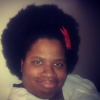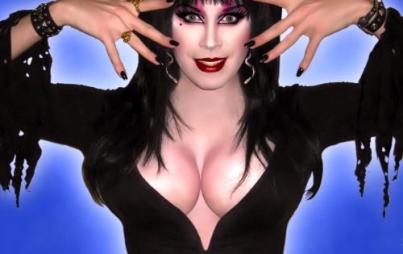
Image Credit: Tanner Vines via Unsplash
When I was about four years old, I wanted to be a singer. As my mother says, I’ve been singing since before I could talk. My father, who recently passed away, was a formidable musician himself.
Music is in my blood, but it was a lofty goal. In a capitalist society, “success” is defined by how much money you make and what you can produce; most artists barely register as a blip on the radar and many struggle just to survive. It’s a hard life in many ways.
But it can also be beautiful.
I felt compelled, like something was calling me.
But by the time I was 14, I’d abandoned the idea of becoming a singer. I’m not really sure why but I think, deep down, I knew it wasn’t in the cards for me. By the time I graduated high school, I’d settled on becoming a high school English teacher. It was a noble profession, and it allowed me to live in a world of words and literature. And as a budding leader, I loved the idea of helping to guide future generations to a love of reading and writing. But most importantly, it was practical.
My other desire was to go into theater and study acting, but you can’t do that. It’s too hard. It’s not a guarantee of success. It’s...silly.
So I went through the motions. My life since college has been a bit of a maze. I spent four years at Rutgers University, where I shone in public but struggled in private. I left without graduating, spent three years in retail, finally graduated in 2011, and then started graduate school in 2012. Things seemed to be looking up. I stuck with my plan to become an educator, so I studied Adolescent Education at Pace University. I was there for two years and, like Rutgers, I left without graduating.
I left primarily for logistical and financial reasons but, if I’m honest, my heart wasn’t fully in it.
Don't get me wrong: I was (and still am) most assuredly passionate about my program, about youth and young adults, and about education in the U.S. from early childhood through higher education. But by the time I left grad school, I was much more focused on honing my craft as a screenwriter and breaking into the industry than I was about IEPs and lesson plans.
I felt compelled, like something was calling me.
The truth, though, is that it had been calling for years. It just took me a long time to finally hear it.
When I was in high school, I was a part of each year’s school play. Every year my role got bigger. By my senior year I was Lena Younger, the matriarch in Lorraine Hansberry’s A Raisin in the Sun. In that same time period, I became interested in film — not just watching it, but understanding it and creating stories of my own. It followed me, like a shadow, to college, where I took a screenwriting 101 course and Italian film courses.
Nothing ever came of it, of course. I already knew the path set before me. I was going to go to graduate school and become an educator. That was the plan.
But it is a rare occasion that life goes according to plan.
In the middle of my very first semester of graduate school, I was living on campus in downtown Brooklyn. We had just survived Hurricane Sandy; we were lucky compared to many other parts of the affected areas. People were itching to get out of their homes, apartments, and dorm rooms after being cooped up for days. Where else was there to go but the movies?
I’ve always been a Denzel Washington fan and I’d heard good things so, naturally, I went to see him in Robert Zemeckis’s Flight.
Success in the arts is as much about sheer luck (and proximity to social privilege) as it is about talent and hard work.
I did not leave that theater the same way I arrived. It was then, as I walked back to my building and looked up at the night sky, that I knew. I thought to myself, “I want to make movies.”
I will never forget looking up at that night sky. I will never forget that compulsion. I will never forget that feeling of certainty.
But it scared me. Screenwriting — indeed, writing in general — isn’t practical. It’s a lofty goal. More than likely, it will lead to struggle and blipness before it leads to a livable income or Oscars. (Yes, I’m making up words. Making up things is what I do.) It will lead to disappointment and regret before it leads to anything that matters really, to me or anyone else. Success in the arts is as much about sheer luck (and proximity to social privilege) as it is about talent and hard work.
Not all of us are so lucky.
So I ignored the call for a year and focused on my studies and my new work-study job, until the call could be ignored no longer.
In the three years since, I’ve written a few short films and features and submitted to multiple contests and competitions, including Screencraft’s Screenwriting Fellowship and the Sundance Screenwriters Lab. I haven’t won anything or even been a finalist, I don’t have an agent or manager, and I’ve most definitely never had a script optioned, bought, or produced.
I’m just a blip.
I already know what you’re thinking. “Why are you talking to me about dreams when you aren’t even close to reaching your own yet? What can you teach me or help me understand?”
I found myself unbelievably frustrated a couple of months ago. Nothing was working and I just didn’t know what to do anymore. I was even tempted to just give up, like I did on singing.
Until I realized something: for the first time in my entire life, I had a dream. A real, living, fiery dream.
When I was a kid, I wanted to sing. I was good at it, I loved to do it, so logically, it made sense that that was what I should become. But there was nothing behind it — no driving force, no real passion, no compulsion.
The same was true for acting and teaching. Even now, I would still love to teach, and I plan to in some capacity — but I am not compelled to.
And while my disabilities can make it difficult to write every day or even every week, my brain and my heart are always on film and screenwriting. When I watch films now, I can still enjoy them for what they are (thank God), but I’m always thinking about story structure, character development, agency, motive, and dialogue. I literally dream up new ideas. Sometimes my heart physically hurts when I think about how badly I want this. This, never anything else before it.
I want it so badly that I’ve finally decided I’m tired of waiting. I want to see my work come to life. I’ll be using a significant portion of the inheritance money from my father (that's the luck I was talking about) to make my own short films, which I will post online. It means stepping outside of my role and comfort zone as a writer to become director, producer, editor, and cinematographer as well.
But I am compelled.








